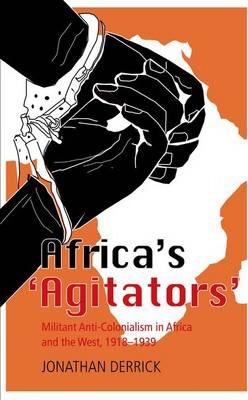The period between the two World Wars were the peak years of the colonial empires, but they were not unchallenged. Individuals and organisations called for major reforms and an end to white supremacy and colonial rule, contributing first to local unrest and protest and then to anticolonial activity not only in Africa but the United States and Europe as well.
In this compelling history, Jonathan Derrick recounts the opposition to British and French rule practised both by Africans living on the continent and by European anticolonialists and members of the Black Diaspora. He covers campaigns waged by an early incarnation of the ANC and other groups in South Africa who fought against legal and other aspects of white minority rule. He also analyses the Kikuyu protests against the settler regime in Kenya; Marcus Garvey's African American movement and its role in sparking interest in Africa; the Étoile Nord Africaine, formed mainly by Algerians in France, that called for the independence of French North Africa; protests led by European critics against forced labour in Kenya and French Equatorial Africa; and the activity of small militant groups like the Ligue de Défense de la Race Nègre (LDRN) in France and George Padmore's International African Service Bureau (IASB) in Britain.
Derrick also examines the role of the Comintern and Western Communist parties that were opposed to Western colonialism and ready to support militant action against it. He shows that, although colonial rulers greatly feared the spectre of Communism in Africa, actual Communist activity was in fact quite small. The onset of the Second World War pushed colonial issues to the background, but as Derrick argues, in the long term the anti-colonialists of the interwar era helped pave the way for later decolonisation.














